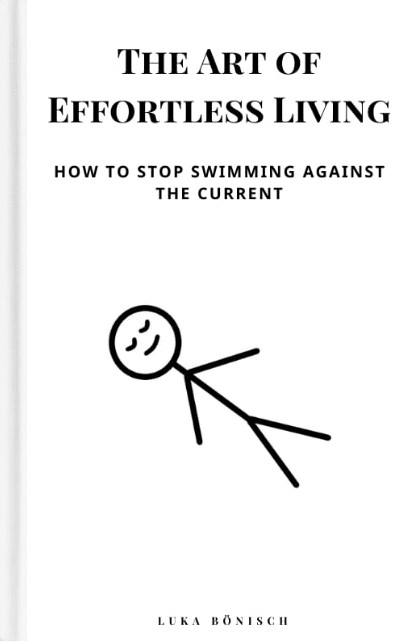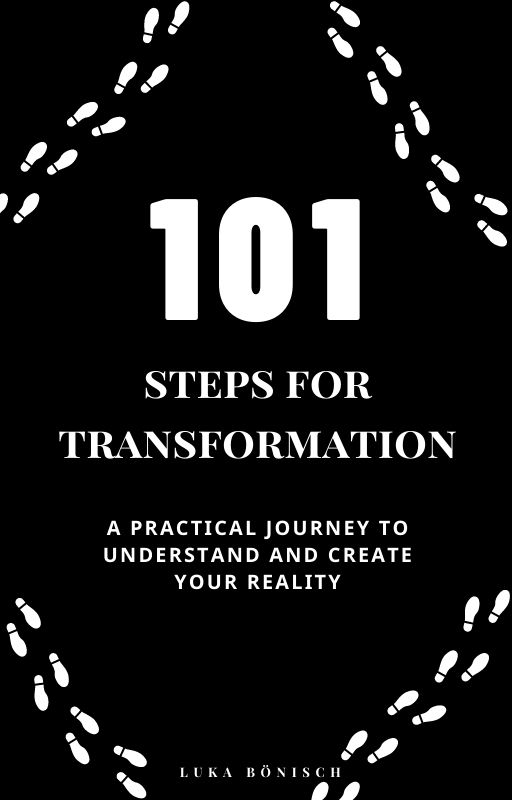How to focus is one of the most important skills that everyone, parents, teachers, and society, never taught us how to do.
Yet everyone wants you to focus.
Focus is the ability to keep your awareness on one thing for a prolonged time. This is the main goal in most meditation practices.
But even on a more pragmatic level being able to concentrate has great value. For instance, focus can improve your career, your relationships, and your cognition.
With good focus you can do the work you want to do instead of distracting yourself all the time.
You can start to listen and follow conversations without thinking about your response or other unrelated things.
A good focus will also enhance all your other cognitive abilities as they often rely on concentration.
With focus, you can manifest the life you desire because you know how to keep your attention on the things you want instead of the things you don’t want.
Focus may be defined as directed attention. And a practice like mindfulness, for instance, requires you to be attentive to the present moment.
Hence, focus will improve mindfulness, which in turn will make you more aware of your thoughts, emotions, behaviors, and so on.
And this leads to a greater capacity to act from a place of kindness, compassion, generosity, and forgiveness.
Focus is truly a powerful skill you should develop.
Just think about all those times when you didn’t do what you wanted to do or missed something important because of the lack of focus.
How to Focus
The following section provides you with a few examples of how you can practice your focus.
But bear in mind that everything you do can be a focus exercise. When you direct your undivided attention onto something you are practicing focus.
However, many of us have difficulties focusing on things that are not in itself a reward.
For instance, focusing on a video game is for most people easier than focusing on their studies. Although focusing on your studies will give you a greater reward down the road.
Hence, the following exercises are designed to improve your focus regardless of the content of your focus.
Do One Thing at a Time

This is probably not news to you but I want to make sure that we are on the same page.
Doing one thing at a time does not only apply to doing work or studying but everything else.
We have countless ways to distract ourselves while doing something that doesn’t require our full attention.
For instance, I enjoy listening to podcasts or audiobooks while cooking or eating. But here I’m not doing one thing at a time.
As a result, I might eat faster and chew less. And I might miss some parts of what I’m listening to when my attention is on the cooking or eating part.
Another good example is music.
Music is an important part of our daily life, which I don’t want to degrade at all. But many people have music running all the time whenever they do anything. And if you’re listening to music whenever you do anything you’re technically never focusing on one thing at a time.
I am not saying that you should never listen to music or a podcast while eating but don’t try to make it a habit.
As much as you can train your mind to focus you can also train your mind to not focus.
When it comes to eating, for instance, choose one meal per day where you eat in silence.
Fully focus on the food you are eating. Be mindful of every bite and chew your food thoroughly. If you have a problem with overeating, this is also a good remedy.
Go For Focus Spurts
Many people when they want to improve in one area often go for an all or nothing approach.
Instead of getting their body accustomed to physical exercise, they want to run a marathon and hit the gym, when they have never run more than a mile or lifted a dumbbell.
This leads to quick burnout and they quit before they have made any actual progress.
The same is true when you want to improve your focus.
Don’t try to focus on something for 10 hours just to never wanting to focus on something ever again.
Go for spurts, not for marathons. And if you have done enough spurts a marathon, if needed, will be much easier.
For example, when you begin to meditate don’t try to sit for an hour right away. Start with five minutes and work your way up.
Or when studying or working try the Pomodoro technique.
Essentially, what you do is work in increments of 25 minutes followed by a five-minute break. And after four increments you take a longer break of 10-15 minutes.
Eventually, you can increase the increments.
In the beginning, it’s a lot easier to keep focus when you define the amount of time you want to concentrate.
Training of the Will

Another good way to learn to focus is doing something that requires willpower.
This way you kill two birds with one stone (I do not recommend killing any birds though). You exercise your will and you improve your focus.
What I can recommend is doing “useless” exercises.
These are exercises that don’t serve any particular purpose but to harness your willpower and focus.
They are also a good antidote for a mind that is validating its self-worth through productivity only.
Here is a list of “useless” exercises:
• Move fifty paper clips from one box to another, one at a time, deliberately and slowly.
• Get up and down from a chair thirty times.
• Stand on a chair for five minutes
• Repeat quietly but aloud: “I will do this,” for five minutes.
• Write 100 times, “I will write a useless exercise.”
• Find a poem you like with about 200 words and memorize it.
• Look at the flame of a candle for 5 minutes.
Do the following for one week and see how your willpower and focus have increased.
• On day 1 do one exercise.
• On day 2 do two exercises.
• On day 3 do three exercises.
• On day 4 replace one of the three exercises with a new one. Do the same for days 5, 6, and 7.
To make this a true focus exercise though be present and don’t be impatient while doing the exercise. Bring your focus back to the exercise whenever your mind starts to wander.
Meditate
Meditation is the archetypal focus exercise.
Although there are many different ways to meditate, essentially you sit down and pay attention to your breath.
Other objects of attention during meditation can be:
• Physical sensation
• Emotions
• A mantra (a word or syllable repeated in your mind)
• Sounds
• Sight (e.g., concentrate on the flame of a candle)
• The content of your mind
• Mental imagery
You can play around with different meditation techniques and see which one resonates with you the most.
Regardless of your approach to meditation, it will increase your focus if you practice regularly.
Before I started meditating my attention was all over the place. Just not where I wanted it to be.
Apart from its focus-improving abilities meditation has countless other benefits.
Find Joy in Focus
The best way to be good at something is to actually enjoy it.
Perhaps you had the experience of being so immersed in your work or another activity that you tapped into the flow state.
The flow state is when your being and your doing become one. Thoughts stop, time flows by, and everything works perfectly.
If you ever had the experience of flow you know how satisfying and pleasurable this can be. These are the moments where you realize how much fun focus can be.
But to experience the joy of focus you don’t have to enter an hours-long flow state.
Sometimes you are immersed in something for just a few minutes. For those few minutes, you are fully here and present.
There is no space for thoughts about yesterday or tomorrow to intrude.
When you find yourself in such a state enjoy it!
In the evening you can remind yourself how much fun it was. Eventually, your mind will associate focus with joy and it will be much easier to concentrate.
And the joy of focus can happen during meditation or even when you are cleaning your house.
If focus is a source of joy you will do every task with much more focus.
And the funny thing is that literally every task does become more fun if you are completely present while doing it.
Last Words and Reframing Focus
For many of us, focus is a negatively afflicted word.
We associate it with hard work and not having fun. That’s one of the reasons why many people dislike hearing this word.
It’s as if a memory of all the not-fun things gets triggered when someone says to focus.
Another reason is that our whole lives it was authorities that told us to concentrate. And authorities are something many people dislike as well.
Hence, it’s easy to see how focus became such an uncomfortable topic for many.
But bear in mind that this is just a bunch of belief systems and projections from society.
Remind yourself how much fun it can be to keep undivided attention.
△△△
Don’t approach this practice in a stern way. Play with it, create your own practice, and relax while practicing.
Paradoxically, focus is a lot easier when you are relaxed.
So breathe, let go of all the unnecessary tension and look forward to all the great time you’ll have focusing and all the benefits it will have in your life.
Luka
Latest posts by Luka (see all)
- The Maelstrom Called You — Why Every Person Is Ecelctic - July 17, 2025
- How to Use Words Correctly - July 8, 2025
- Guilty Until Imagined Innocent - June 25, 2025


